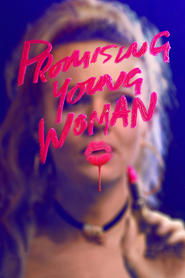It would be one thing if Promising Young Woman wanted to speak to the futility of the one-woman revenge machine, but it then turns around after Cassie’s death […] to suggest that some victory was won after all. Though the film points to the many links in the chain that diminish women’s suffering (complicit universities; nice guys who play along; women who tell other women it’s no big deal), it is somehow the most troubling institution of all – the police – who come to the dead Cassie’s rescue. We are meant to find her final freedom in the image of a handcuffed man being escorted by detectives away from his wedding, a strange, pasted-together compromise that comes across as ideologically insulting and confused, although ideal for the Academy, which loves to slickly gesture at subversion while leaving the core tenets of the establishment unchallenged.[…]
Contra to the film’s recycling of familiar cultural tropes to drive home points already known, it would be far better to break out of the loop entirely […] rather than simply switching pre-determined tropes to leave us gaping at a trophy we never wanted.
— Rebecca Liu (Another Gaze)
The film plays out essentially as an escalating series of gotcha moments, building up Cassandra with directionless girlboss triumphs that feel cheap and naggingly empty at their core. We’re left wondering who this super-genius avenging angel actually is beyond her trauma, which completely defines her personality. It’s not just hopeless and self-defeating as a portrait of female empowerment, it’s practically Joker-esque in its flailing insistence of its own social relevance.
— Beatrice Loayza (Reverse Shot)

